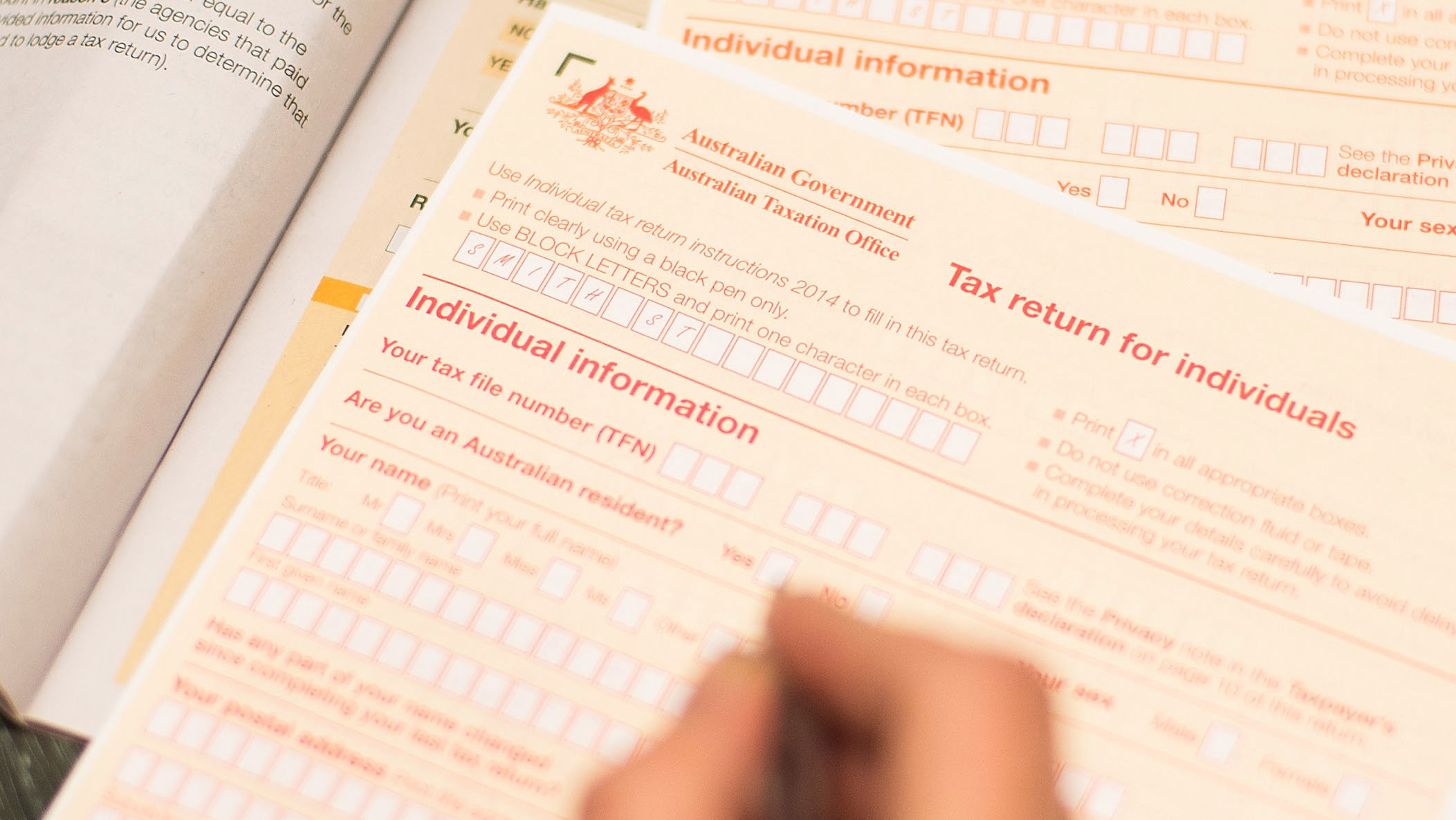How to Submit Your Australian Tax Return Online for a Hassle-Free Experience
Usings an Income Tax Return: Unlocking Prospective Financial Savings and Making Certain a Larger Tax Reimbursement
The tax return offers as a vital instrument for individuals seeking to enhance their economic outcomes, offering many avenues for potential cost savings and boosted refunds. By leveraging debts and reductions, taxpayers can strategically lower their taxable earnings and boost their overall economic standing. The complexities of tax regulations and the ever-evolving landscape of tax law require a thorough understanding of readily available choices. What are the key methods that can be utilized to assure that taxpayers utilize on these advantages? The answer might expose greater than simply monetary gains.
Recognizing Tax Obligation Deductions
Several taxpayers may locate themselves bewildered by the intricacies of tax obligation reductions, yet understanding these important components is critical for optimizing potential savings. Tax obligation reductions reduce taxable income, thereby reducing the total tax obligation obligation for businesses and people. Familiarizing oneself with the different kinds of deductions offered can substantially improve one's capability to optimize income tax return.
Reductions can be categorized into conventional and itemized reductions. The common reduction gives a set reduction in taxed revenue, while itemized reductions permit taxpayers to specify certain expenditures, such as home loan interest, state tax obligations, and charitable payments. Taxpayers must examine which alternative yields the best advantage, as selecting the suitable deduction technique can result in substantial cost savings.
Moreover, it is very important to preserve precise documents of insurance deductible expenses throughout the tax year. This practice not just promotes the preparation of tax obligation returns yet likewise assures conformity with internal revenue service requirements. Taxpayers ought to likewise stay notified about changes in tax regulations that might influence eligible deductions, as these can vary yearly. By properly going across the landscape of tax reductions, individuals can expose the potential for a much more beneficial tax end result and protected higher economic benefits.
Discovering Tax Credit Scores
Tax obligation debts represent an additional noteworthy method for taxpayers to minimize their general tax obligation responsibility, matching the benefits gained from reductions. Unlike deductions, which reduced gross income, tax obligation credit reports offer a dollar-for-dollar reduction of the real tax obligation owed. This difference makes tax obligation credit reports especially beneficial for individuals seeking to optimize their savings.
There are two main sorts of tax credit ratings: refundable and nonrefundable. Nonrefundable credit histories can reduce your tax liability to absolutely no however not below that amount, while refundable credit histories can result in a refund if the debts surpass the tax obligation owed. Instances of frequently declared tax credit reports consist of the Earned Earnings Tax Obligation Credit Rating (EITC), the Child Tax Credit scores, and education-related debts like the American Opportunity Credit.
Eligibility needs for these credit histories can differ considerably, frequently based on earnings, filing standing, and certain scenarios. Taxpayers ought to thoroughly review the requirements linked with each credit rating to ascertain they assert all benefits for which they certify. By strategically making use of readily available tax credit ratings, individuals can improve their income tax return, eventually resulting in significant financial savings and potentially larger refunds.

Investing Your Reimbursement Sensibly
Getting a Tax reimbursement can seem like a monetary windfall, but just how that money read here is utilized can profoundly impact long-term monetary health. As opposed to watching your reimbursement as disposable revenue, consider it a chance to invest in your future.

One efficient option is adding to a Specific Retirement Account (INDIVIDUAL RETIREMENT ACCOUNT) This can improve your retired life savings while potentially producing tax obligation advantages. Spending in a diversified supply portfolio can provide substantial growth capacity over time, permitting your reimbursement to work for you in the market.
In addition, think about using your refund to pay down high-interest debt, such as bank card equilibriums. Lowering financial debt can enhance your monetary standing and alleviate stress, ultimately enabling you to assign more funds toward investments in the future.
For those concentrated on education, utilizing your refund for a 529 university savings strategy can assist protect a brighter future for yourself or your children.
Preparation for Future Expenses
Carefully intending for future expenditures is essential for preserving financial stability and accomplishing long-term goals. A well-structured financial plan allows individuals to designate resources effectively, making sure that upcoming expenses do not disrupt their economic health. Tax obligation returns can provide a beneficial foundation for this planning procedure.
Using the reimbursement as a springboard, individuals can determine and focus on considerable future expenses, such as home repairs, education expenses, or healthcare needs. Developing a spending plan that incorporates these anticipated expenses allows an aggressive technique, lessening the probability of economic pressure when the time involves address them.
In addition, reserving funds from your tax reimbursement right into devoted interest-bearing accounts see this can improve the effectiveness of your planning. Australian Tax return online. Consider creating a reserve specifically for unexpected expenditures, guaranteeing that you are gotten ready for unforeseen conditions without thwarting your monetary objectives
Common Blunders to Prevent
Lots of people make critical mistakes when handling their tax returns that can undermine their monetary preparation initiatives. Insufficient paperwork can lead to missed out on deductions, resulting in a lower refund or greater tax responsibility.
Another regular blunder is disregarding to assess tax legislation adjustments. Tax obligation laws can develop each year, and ignorance of these modifications may result in missed out on chances for tax credits or reductions. Furthermore, numerous taxpayers neglect eligible deductions, such as those for clinical expenditures or educational costs.

Filing tax obligations as well early or as well late can additionally be damaging. Early filers might miss out on out on final tax obligation breaks, while late filers take the chance of charges and rate of interest.
Additionally, not seeking specialist assistance when required can bring about expensive mistakes. Tax obligation specialists can supply useful insights, ensuring conformity and making best use of potential cost savings.
Last but not least, hurrying with the return can bring about basic math blunders or overlooked kinds. Taking the time to confirm all entrances is essential for an effective tax return outcome.
Conclusion
To summarize, the strategic check usage of tax obligation returns functions as a critical mechanism for maximizing financial benefits. By completely understanding and using reductions and credit histories, people can greatly lower taxed earnings and boost reimbursement amounts. Additionally, sensible financial investment of reimbursements and effective preparation for future costs contribute to long-lasting monetary stability. Recognition of typical challenges can likewise simplify the tax procedure, inevitably equipping taxpayers to take advantage of their returns for an extra secure economic future.
Tax credit histories stand for an additional noteworthy method for taxpayers to reduce their general tax obligation obligation, complementing the advantages obtained from deductions. Unlike deductions, which lower taxable income, tax credit reports offer a dollar-for-dollar decrease of the real tax owed. Nonrefundable credit scores can reduce your tax liability to no however not listed below that amount, while refundable credit reports can result in a reimbursement if the credit histories exceed the tax obligation owed. Examples of generally asserted tax credits include the Earned Earnings Tax Credit Scores (EITC), the Kid Tax Obligation Credit report, and education-related credit ratings like the American Chance Credit Scores.
Tax laws can advance every year, and lack of knowledge of these changes might result in missed out on opportunities for tax obligation credit scores or reductions. - Australian Tax return online